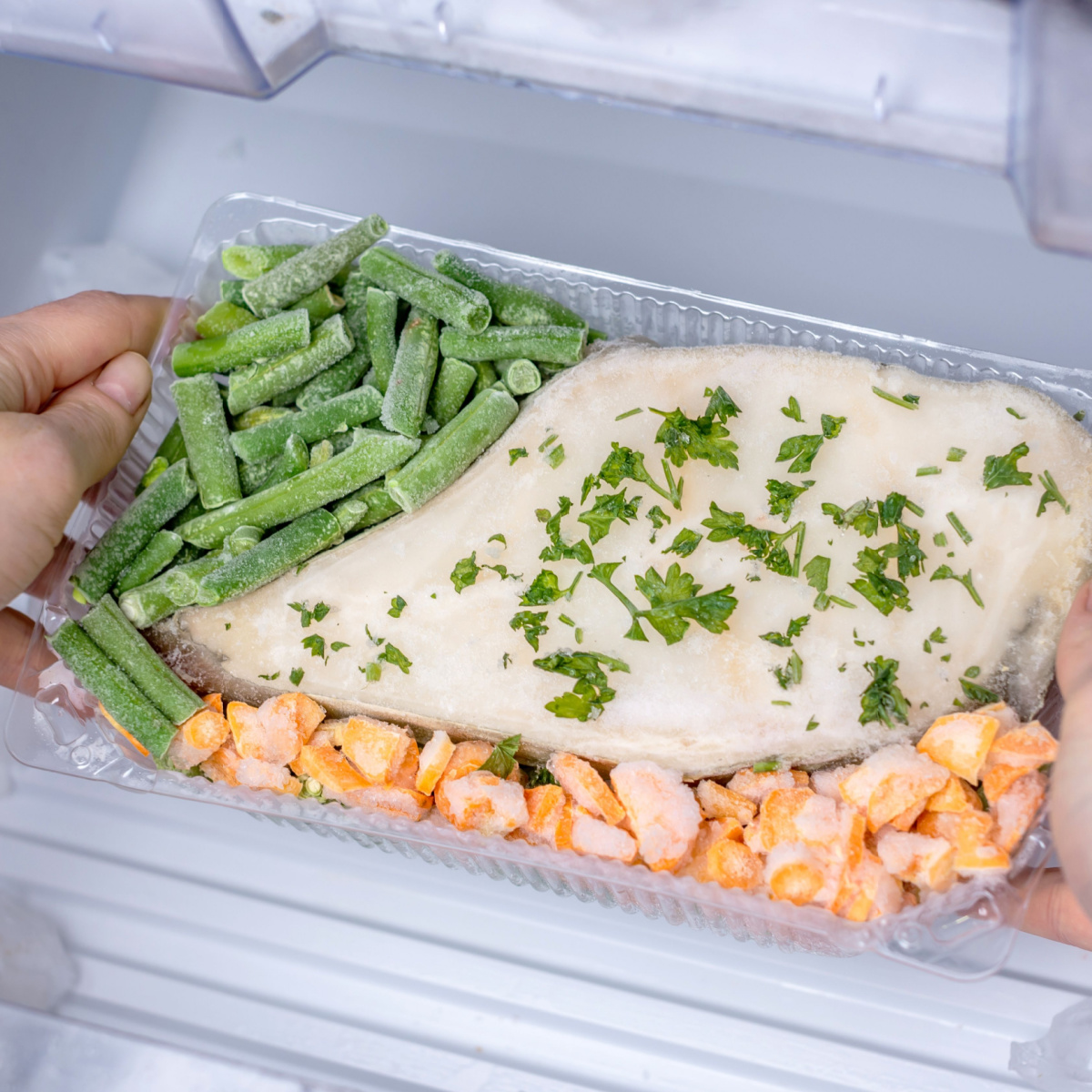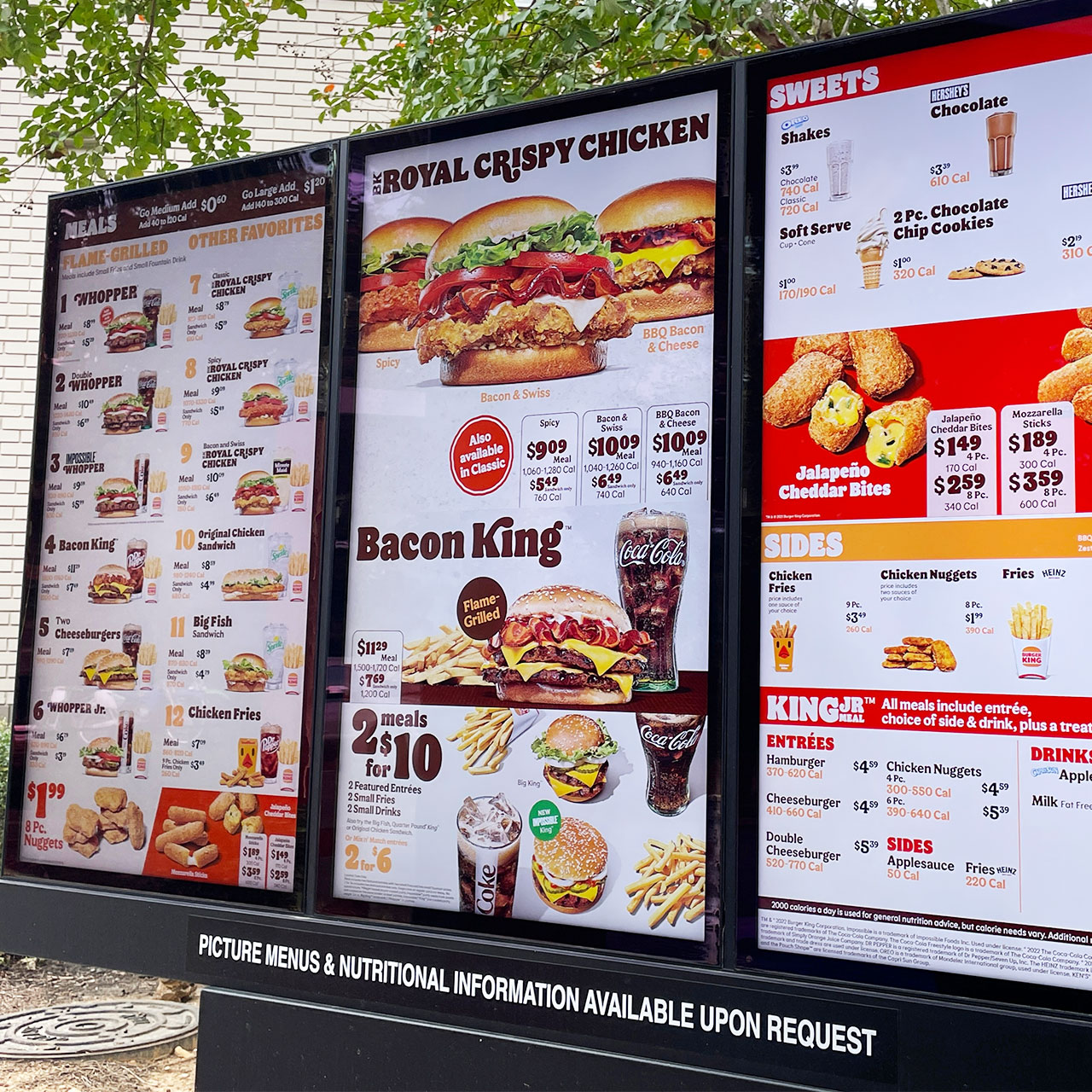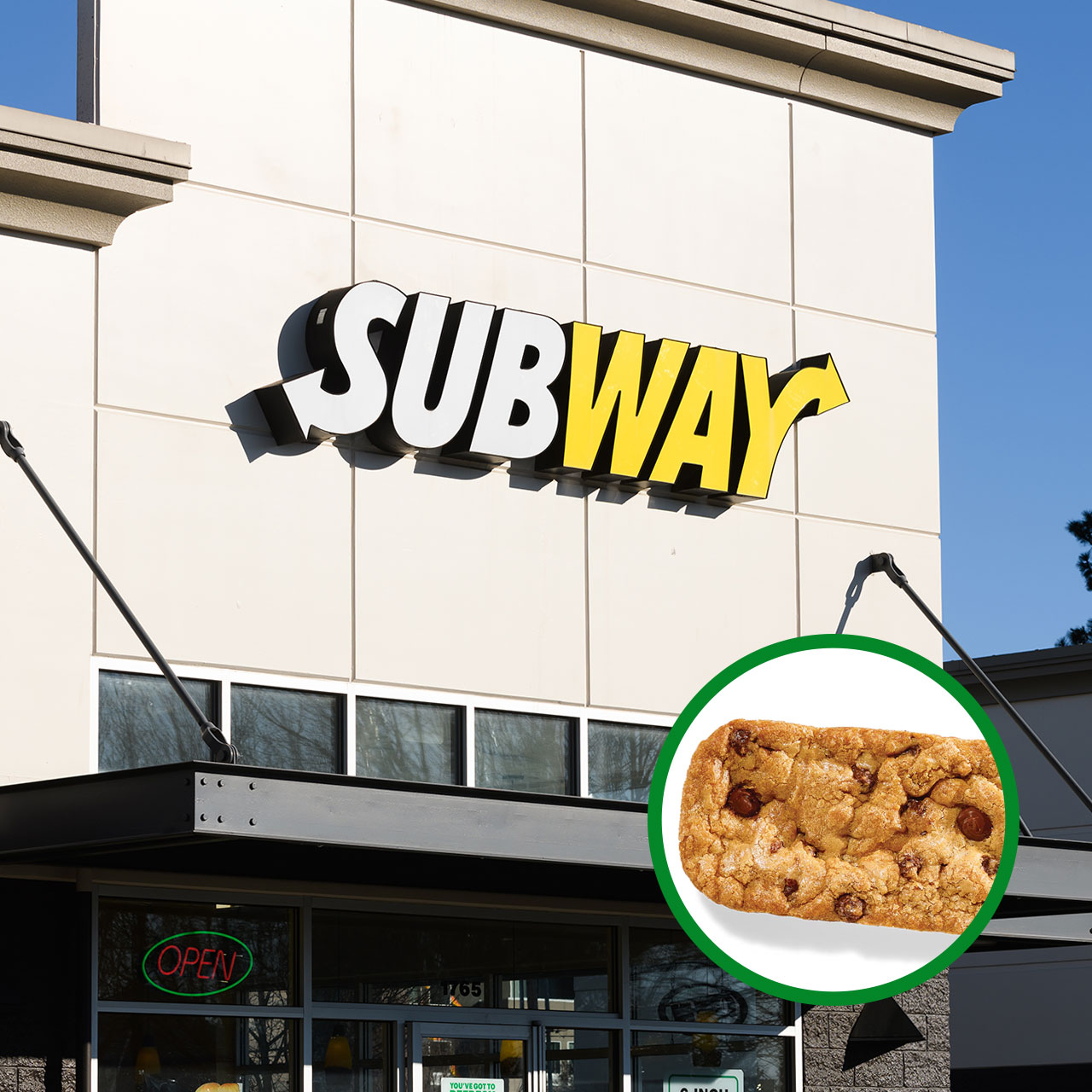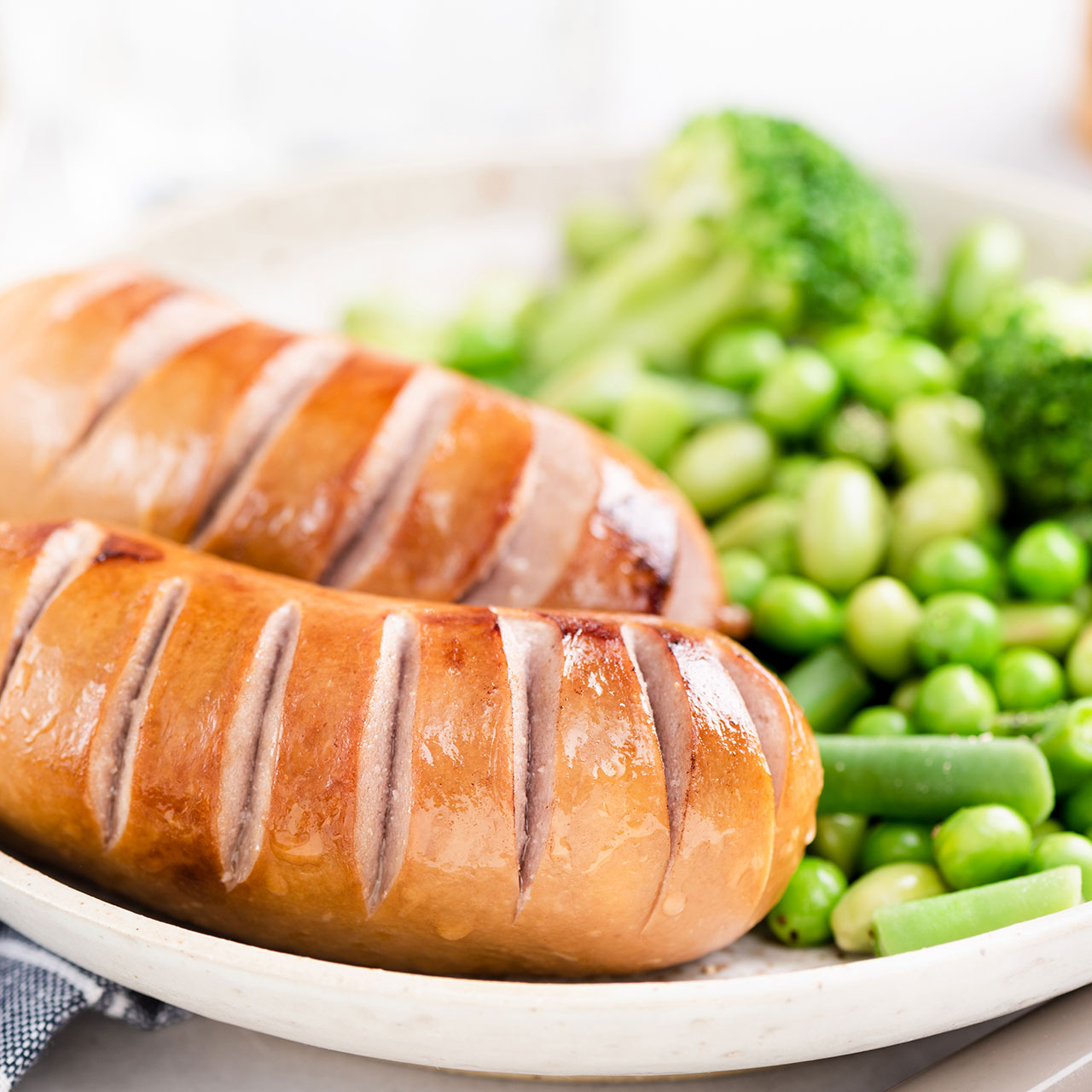Frozen foods are a staple in many households, offering convenience for those who are busy, not to mention the added benefit of a longer shelf life. However, not all frozen options are gentle on your digestive system. Some of these convenient meals can wreak havoc and leave you feeling bloated and uncomfortable afterward.
To find out about six frozen foods to avoid buying the next time you go to the grocery store, we checked in with Krutika Nanavati, a registered dietitian and nutritionist; Michelle Saari, RD at EHealth Project; and Jesse Feder, RDN, CPT at My Chrons and Colitis Team. They revealed that frozen pizza, frozen fried chicken, frozen pasta dishes, and others are among those to avoid. Read on to find out more and why they should be eliminated to keep your digestive system healthy.


1. Frozen Pizza
Frozen pizzas often contain high levels of unhealthy fats, including saturated fats and trans fats. These fats can slow down digestion, leading to feelings of heaviness and bloating.
Nanavati notes that the high sodium, refined carb, and high fat content is what makes frozen pizza a meal to steer clear of.
"Frozen pizzas tend to have high sodium levels, which can lead to water retention and bloating. A slice of frozen pizza can contain up to 400mg of sodium, exceeding half of the recommended daily intake (RDI) of 2,300mg," says Nanavati.
Surprisingly, not even the crust of the pizza is innocent here. "The crust of frozen pizzas is often made with refined white flour, which is rapidly absorbed and can cause fluctuations in blood sugar levels. These spikes and crashes can contribute to feelings of hunger and overeating, potentially leading to weight gain. Frozen pizzas often contain high amounts of saturated and unhealthy fats, particularly in the cheese and toppings. These fats can slow down digestion and contribute to bloating and discomfort," she says.

2. Frozen Fried Chicken
Frozen fried chicken, a convenient choice, may have implications for bloating and other digestive issues. These frozen varieties often contain high levels of unhealthy trans fats and saturated fats due to the frying process and added coatings. Consuming excessive amounts of trans fats and saturated fats can lead to inflammation, water retention, and bloating.
Nanavati reveals that these frozen fried chickens are laden with high amounts of sodium and processed ingredients, making them a high-calorie dinner.
"Frozen fried chicken is heavily coated in batter and fried in oil, significantly increasing fat content. A single serving of frozen fried chicken can contain over 50 grams of fat, exceeding the RDI of 44–77 grams for adults. Frozen fried chicken often contains processed ingredients, such as artificial flavors, preservatives, and fillers, contributing to inflammation and gut health issues," she says.
She further adds that "these issues can manifest as bloating, gas, and digestive discomfort. Frozen fried chicken is typically high in calories, often exceeding 500 calories per serving. Consuming these calories regularly can contribute to weight gain if not balanced with adequate physical activity."

3. Frozen Pasta Dishes
The ingredients in frozen pasta dishes are highly processed. These include refined flours, artificial additives, preservatives, and flavorings. Processed foods can be more challenging for the digestive system to break down and may cause irritation or inflammation in the gut.
There are a lot of frozen pasta options, but many of them are not as healthy as they seem in the frozen food aisle. Nanavati shares, "Frozen pasta dishes are often high in sodium, similar to frozen pizzas. A serving can contain over 600mg of sodium, significantly exceeding the RDI. Frozen pasta dishes typically use delicate pasta, which is low in fiber and nutrients. This type of pasta can cause blood sugar spikes and crashes, leading to overeating and potential weight gain."
Creamy pastas are some of the most popular options, but even the consistency can pack on calories. "Many frozen pasta dishes are prepared with creamy sauces high in fat and calories. These sauces can contribute to bloating, discomfort, and potential weight gain."
Instead, Nanavati says you should opt for frozen meals such as lean protein dishes, vegetarian dishes, and stir-fries. However, make sure to read the labels since a lot of these healthier frozen meals can have sneaky additives and processed ingredients that can affect bloating and weight gain.

4. Frozen Yogurt
Frozen yogurt contains lactose, a type of sugar found in dairy products. Many people have lactose intolerance, which means they might have trouble properly digesting lactose. This can lead to symptoms like bloating, gas, and diarrhea.
Some frozen yogurts even use artificial sweeteners, such as sorbitol or aspartame, to reduce calorie content. These sweeteners can cause digestive issues, including bloating and gas, as they are not fully absorbed by the body and can ferment in the gut.
"Frozen yogurt, while usually lower in calories and fats than ice cream, is still loaded with sugar, flavorings, and preservatives. Most of the ones you find in stores can still contribute to weight gain and inflammation throughout the body," says Feder.

5. Low-Fat Frozen Dinners
Low-fat frozen dinners often contain high levels of sodium, used as a preservative and flavor enhancer. Excessive sodium intake can lead to water retention, causing bloating and discomfort.
To improve taste and texture, low-fat frozen dinners often include artificial additives, preservatives, and other enhancers. These substances can cause GI issues, digestive irritation, and sensitivity, leading to bloating and discomfort.
Feder elaborates and says that "low-fat frozen dinners are marketed as healthy dinners, but they still contribute high amounts of sodium and preservatives and are usually not satiating enough to only have one. This can lead to overeating, increases in weight, and inflammation throughout the body."

6. Frozen Mozzarella Sticks
Mozzarella sticks are often deep-fried before freezing, resulting in high levels of unhealthy fats, particularly saturated and trans fats. These fats can slow down digestion, leading to feelings of heaviness, bloating, and discomfort.
If you are lactose intolerant, look for lactose-free cheese alternatives or limit your intake of mozzarella sticks.
Saari says that this cheesy snack "often contains trans fats, used in oils for frying, which can negatively affect your cholesterol levels and heart health, potentially slowing down your metabolism. The breading, made from refined flour, contributes to the rapid spikes in blood sugar levels, leading to insulin resistance when consumed frequently.”


























